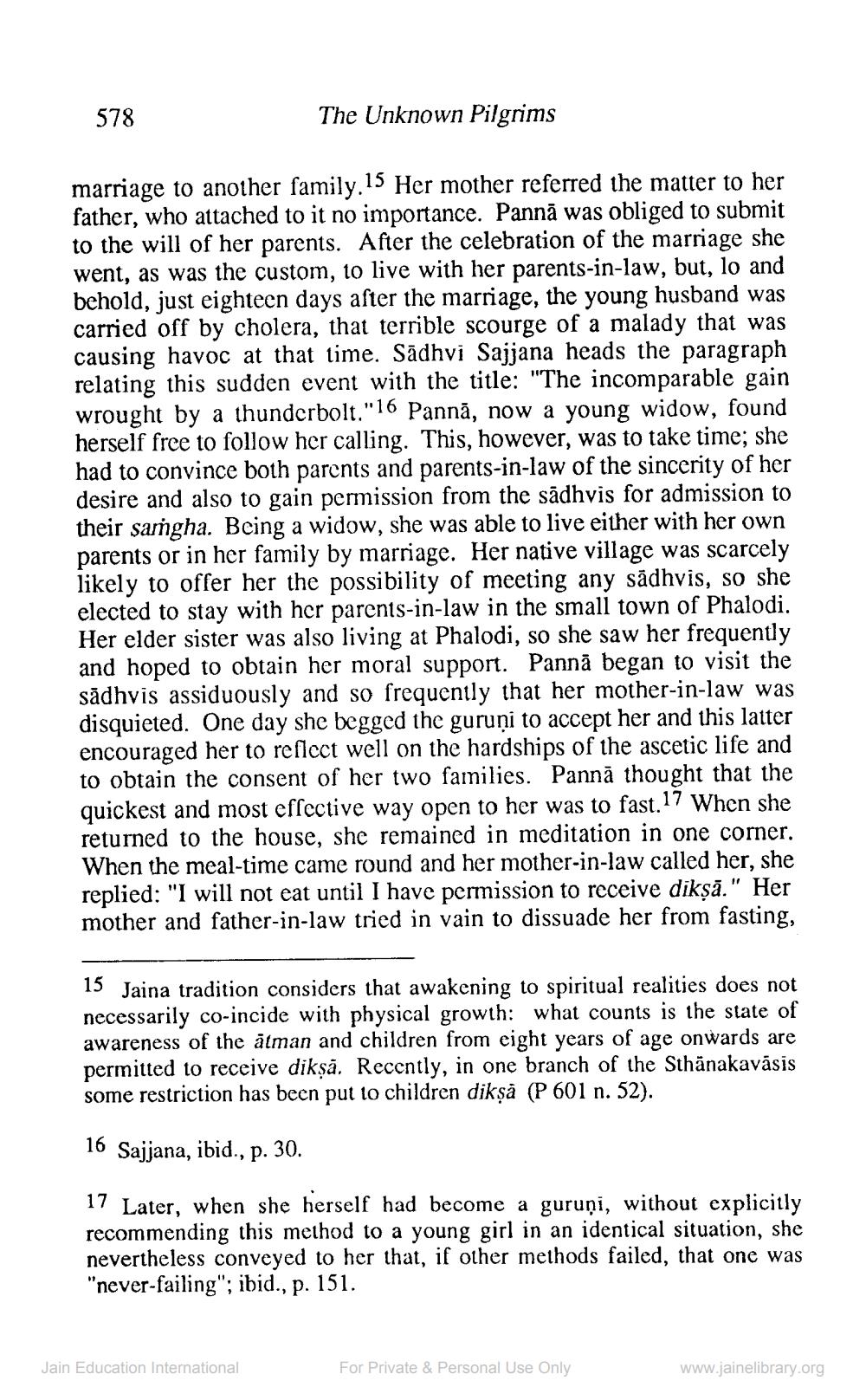________________
578
The Unknou
marriage to another family.15 Her mother referred the matter to her father, who attached to it no importance. Pannā was obliged to submit to the will of her parents. After the celebration of the marriage she went, as was the custom, to live with her parents-in-law, but, lo and behold, just eighteen days after the marriage, the young husband was carried off by cholera, that terrible scourge of a malady that was causing havoc at that time. Sādhvi Sajjana heads the paragraph relating this sudden event with the title: "The incomparable gain wrought by a thunderbolt."16 Pannā, now a young widow, found herself free to follow her calling. This, however, was to take time; she had to convince both parents and parents-in-law of the sincerity of her desire and also to gain permission from the sādhvis for admission to their samgha. Being a widow, she was able to live either with her own parents or in her family by marriage. Her native village was scarcely likely to offer her the possibility of meeting any sādhvis, so she elected to stay with her parents-in-law in the small town of Phalodi. Her elder sister was also living at Phalodi, so she saw her frequently and hoped to obtain her moral support. Pannā began to visit the sādhvis assiduously and so frequently that her mother-in-law was disquieted. One day she begged the guruņi to accept her and this latter encouraged her to reflcct well on the hardships of the ascetic life and to obtain the consent of her two families. Pannā thought that the quickest and most effective way open to her was to fast. 17 When she returned to the house, she remained in meditation in one corner. When the meal-time came round and her mother-in-law called her, she replied: "I will not eat until I have permission to receive dikṣā." Her mother and father-in-law tried in vain to dissuade her from fasting,
15 Jaina tradition considers that awakening to spiritual realities does not necessarily co-incide with physical growth: what counts is the state of awareness of the atman and children from eight years of age onwards are permitted to receive dikṣā. Recently, in one branch of the Sthānakavāsis some restriction has been put to children diksa (P 601 n. 52).
16 Sajjana, ibid., p. 30.
17 Later, when she herself had become a guruņi, without explicitly recommending this method to a young girl in an identical situation, she nevertheless conveyed to her that, if other methods failed, that one was "never-failing"; ibid., p. 151.
Jain Education International
For Private & Personal Use Only
www.jainelibrary.org




